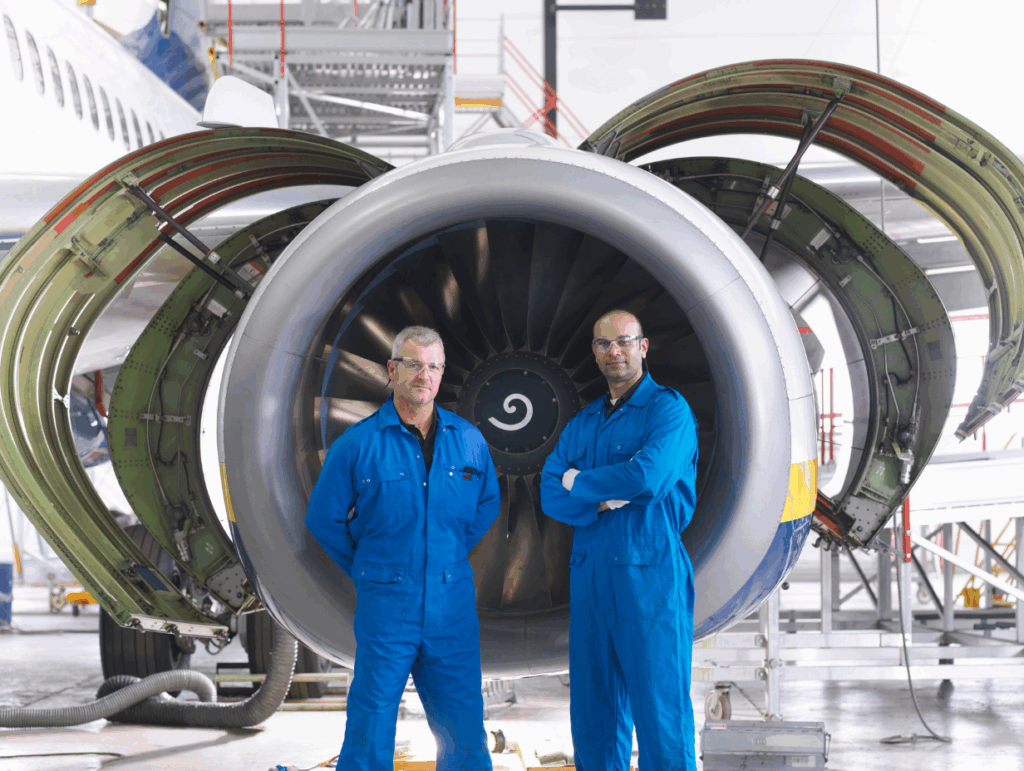The Problem Isn’t the Aircraft. It’s the Attrition.
The aviation industry is facing a mounting workforce crisis. Aircraft utilisation has recovered, fleet sizes are growing, and maintenance schedules are intensifying. Yet the supply of qualified technicians remains static.
In North America, industry analysts estimate a shortfall of 24,000 aviation maintenance technicians by 2027. Western Europe is already seeing the effects of this shortage. Retirements continue to accelerate while too few mid-career professionals are available to fill the void.
Training pipelines remain under-resourced. Traditional sourcing strategies are falling behind. And the institutional knowledge that once defined high-performance teams is steadily disappearing.
The Exit of Experience
Veteran engineers are leaving the workforce, taking decades of procedural and platform-specific knowledge with them. These professionals have managed everything from structural reconfigurations to powerplant overhauls across multiple aircraft types. Their expertise is not easily replaced.
As these professionals depart, maintenance operations lose speed and precision. Fault tracing slows. Rework increases. Efficiency declines, even before teams drop below critical headcount.
Operators have historically responded by expanding hiring initiatives. But domestic labour pools are either stagnant or saturated. Entry-level trainees are years from being fully authorised. Legacy apprenticeship schemes, where they still exist, have not kept pace with current needs.
A Global Answer to a Regional Problem
The Airmen Global Skills Program provides an international solution. It connects high-skill engineers from regions with technical labour surpluses to long-term placements in Western operations. These are not temporary contractors. They are permanent, embedded staff who relocate, integrate, and stabilise maintenance teams.
The model targets Third Country Nationals (TCNs) from countries in Southeast Asia, the Indian subcontinent, North Africa, and the Balkans. These engineers arrive fully certified or cert-ready, bringing type-rated experience, verified logbooks, and immediate operational value.
What the Program Delivers
Experienced Capability
Engineers are field-tested and licence-qualified. They are trained in internationally recognised standards and capable of line and base maintenance from day one.
End-to-End Deployment
Airmen handles everything from candidate sourcing and vetting to visa applications, relocation, and site onboarding. Engineers arrive fully compliant and site-ready.
Long-Term Stability
Unlike short-term staffing fixes, this model is structured for integration. Engineers are placed with progression plans, mentorship opportunities, and local support. Retention is actively managed to sustain continuity.
Structured for Operational Impact
Source: From technically capable labour markets with available capacity
Screen: Tailored to client platforms, language needs, and compliance requirements
Support: Includes logistics, accommodation, and cultural onboarding
Deploy: Engineers are embedded directly into teams based on workload and capability needs
Retain: With community support and professional development pathways
Why the Model Works
Airmen maintains a global sourcing network built around trusted local partners and proven pipelines. The company has delivered skilled teams into widebody MRO programs, cabin reconfiguration lines, and long-term maintenance contracts at major base facilities.
Broader Context: Hong Kong’s Response
The Hong Kong aviation industry offers a wider precedent. Facing a projected shortfall of 60,000 technicians, the region is working to bring in 10,000 skilled workers over the next three years. Officials have confirmed that countries like the Philippines, Malaysia, and others across Southeast Asia and the Indian subcontinent are priority sources, citing their strong technical education systems and English language proficiency.
This example reflects a broader industry acknowledgement: where local pipelines falter, international capability can provide a timely and effective solution.
Conclusion
The global aircraft fleet continues to expand. The domestic workforce in key regions does not. Airmen’s Global Skills Program addresses this imbalance with scale and reliability.
By enabling permanent placements for proven engineers, the program strengthens continuity, restores operational capacity and delivers talent where it is most urgently needed.
Talk to Airmen about Global Skills
Get the skills. Keep the continuity. Build the team you actually need.



